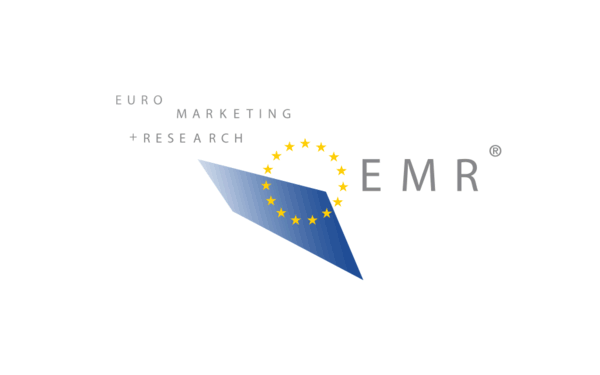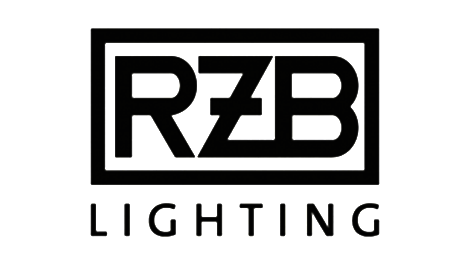RZB Lighting – RZB Group’s environmental management recognized
In a record time of just eight months, the Rudolf Zimmermann GmbH group of companies succeeded in obtaining EMAS validation for two companies, the Franconian RZB Rudolf Zimmermann, Bamberg GmbH and the Thuringian sister company SONLUX Lighting GmbH.
The entry in the EMAS register was already made at the beginning of February via the Nuremberg Chamber of Industry and Commerce (IHK).
EMAS, also known as Eco-Management and Audit Scheme, is a voluntary environmental management system of the European Union. It is aimed at organizations that want to continuously improve their environmental performance and report transparently on their environmental activities. The certificate states that an organization has implemented an effective environmental management system and conducts regular environmental audits. Compliance with EMAS requirements is verified by accredited environmental verifiers. These verifiers are independent third parties who ensure that the organization meets the required standards. To obtain the EMAS certificate, companies must meet certain requirements, including the preparation of an environmental statement that describes the organization’s environmental performance and objectives. EMAS is open to companies of all sectors and sizes and also meets the requirements of the international standard ISO 14001.
Receiving the EMAS certificate represents an important milestone in the company’s history. By implementing EMAS in the RZB Group, relevant environmental impacts can be systematically recorded and environmental performance can be continuously improved. This is achieved through compliance with all relevant environmental regulations and the active involvement of employees in the environmental protection process.
Through EMAS registration and the commitment to environmentally conscious action and sustainable development, RZB and SONLUX assume social responsibility. Added value: For customers and stakeholders of the group, the transparent and legally compliant handling of environmental aspects such as energy consumption, waste and emissions strengthen the Group’s confidence, market presence and innovative strength. Validation according to EMAS contributes to active climate protection, a future-proof position and long-term partnerships, while at the same time fulfilling legal obligations and minimizing liability risks.
SourceRZB Lighting –
EMR Analysis
More information on RZB Lighting by Rudolf Zimmermann GmbH: https://www.rzb.de/en/ + As a lighting and luminaire multi-specialist, RZB Rudolf Zimmermann, Bamberg GmbH – RZB for short – has stood for intelligent lighting solutions “Made in Germany” for over 85 years.
As a diversified group of companies, we have a considerable vertical range of manufacture in Bamberg. Our sustainability activities, which have been recognised by EcoVadis and others, and our DIN-ISO 9001 certification illustrate the mentality of our company.
The focus of our internationally operating family business is on the development and production of indoor and outdoor luminaires, emergency luminaires and efficient lighting management systems. A new addition to the portfolio is the RZB Energy brand with a new, fully modular concept of luminaires with integrated charging functions. Proven light pedestals and bollards, which have so far defied wind and weather as pure outdoor lighting, have been hybridised and now offer architecturally appealing, modular charging options for electric cars in public and private areas.
Whether in industrial, office or shop applications, in private and public buildings, outdoors, on paths and squares – with 360° Lighting Competence we offer our customers lighting and services from a single source: from consultation and planning to financing and commissioning, service and maintenance to continuous monitoring and optimisation over the complete life cycle of the lighting installations.
- 800+ Employees Worldwide
- 11 Companies and 70+ Agents
- 20.000+ Product Portfolio
More information on Dr.-Ing. Alexander Zimmermann (Owner and Managing Director, RZB Lighting): See the full profile on EMR Executive Services
More information on Reiner Jürgens (Managing Director, RZB Lighting): See the full profile on EMR Executive Services
More information on Wilhelm Balbierer (Group Sales Director, RZB Lighting): See the full profile on EMR Executive Services
More information on Bamberg GmbH by Rudolf Zimmermann GmbH: See the full profile on EMR Executive Services
More information on SONLUX Lighting GmbH by Rudolf Zimmermann GmbH: See the full profile on EMR Executive Services
More information on The European Union: https://european-union.europa.eu/index_en + The European Union’s institutional set-up is unique and its decision-making system is constantly evolving. The 7 European institutions, 7 EU bodies and over 30 decentralised agencies are spread across the EU. They work together to address the common interests of the EU and European people.
In terms of administration, there are a further 20 EU agencies and organisations which carry out specific legal functions and 4 interinstitutional services which support the institutions.
All of these establishments have specific roles – from developing EU laws and policy-making to implementing policies and working on specialist areas, such as health, medicine, transport and the environment.
There are 4 main decision-making institutions which lead the EU’s administration. These institutions collectively provide the EU with policy direction and play different roles in the law-making process:
- the European Parliament (Brussels/Strasbourg/Luxembourg)
- the European Council (Brussels)
- the Council of the European Union (Brussels/Luxembourg)
- the European Commission (Brussels/Luxembourg/Representations across the EU)
Their work is complemented by other institutions and bodies, which include:
- the Court of Justice of the European Union (Luxembourg)
- the European Central Bank (Frankfurt)
- the European Court of Auditors (Luxembourg)
The EU institutions and bodies cooperate extensively with the network of EU agencies and organisations across the European Union. The primary function of these bodies and agencies is to translate policies into realities on the ground.
Around 60,000 EU civil servants and other staff serve the 450 million Europeans (and countless others around the world).
Currently, 27 countries are part of the EU: https://european-union.europa.eu/principles-countries-history/country-profiles_en
More information on The European Commission: https://ec.europa.eu/info/index_en + The Commission helps to shape the EU’s overall strategy, proposes new EU laws and policies, monitors their implementation and manages the EU budget. It also plays a significant role in supporting international development and delivering aid.
The Commission is steered by a group of 27 Commissioners, known as ‘the college’. Together they take decisions on the Commission’s political and strategic direction.
A new college of Commissioners is appointed every 5 years.
The Commission is organised into policy departments, known as Directorates-General (DGs), which are responsible for different policy areas. DGs develop, implement and manage EU policy, law, and funding programmes. In addition, service departments deal with particular administrative issues. Executive agencies manage programmes set up by the Commission.
Principal roles in law: The Commission proposes and implements laws which are in keeping with the objectives of the EU treaties. It encourages input from business and citizens in the law-making process and ensures laws are correctly implemented, evaluated and updated when needed.
More information on Ursula von der Leyen (President, The European Commission): https://ec.europa.eu/commission/commissioners/2019-2024/president_en + https://www.linkedin.com/in/ursula-von-der-leyen/
More information on EMAS (Eco-Management and Audit Scheme) by the European Commission: https://green-business.ec.europa.eu/eco-management-and-audit-scheme-emas_en + EMAS is an important tool within the framework of one of the main building blocks of the European Green Deal. Its goal is to drive organisations towards circularity and reduce their impact on the environment. The overall environmental performance of the organisation is improved and regularly verified through EMAS.
This is achieved by:
- identifying their direct and indirect environmental impacts and establishing voluntary objectives and targets to reduce them
- establishing and implementing robust environmental management systems with the identified measures
- systematically evaluating their effectiveness and transparently reporting on environmental performance
- enhancing transparency by publishing their environmental statement and engaging in open dialogues with the public and stakeholders
- recognising their efforts by a third-party accredited environmental verifier
- encouraging active employee involvement and providing training.
By embracing EMAS, organisations strive for continuous improvement of their environmental performance.
More information on IHK (Chamber of Commerce and Industry, Germany): https://www.ihk.de/ + https://www.dihk.de/en + The DIHK represents commercial and industrial enterprises and those belonging to the service sector vis-à-vis politicians, administrators and the public. It represents the general interest of the commercial sector at federal and European level – for example for less bureaucracy, free trade or a fast internet. The goal: good framework conditions for successful business. The DIHK aggregates the interests of businesses across all sectors and branches of the economy in a democratic and deliberative manner. These interests are conveyed to it by the 79 local Chambers of Commerce and Industry across Germany. The spectrum of opinions on the various economic policy issues is as diverse as the business landscape in Germany.
More information on ISO: http://www.iso.org/ + ISO (International Organization for Standardization) is the world’s largest developer of International Standards. Through our members and their stakeholders, we bring people together to create International Standards that respond to global challenges. ISO standards support global trade, drive inclusive and equitable economic growth, advance innovation and promote health and safety to achieve a sustainable future. Follow us to learn more about standards and how you can participate to making lives easier, safer, and better.
More information on Dr. Sung Hwan Cho (President, ISO): https://www.iso.org/structure.html
More information on ISO 14001 by ISO: https://www.iso.org/standard/60857.html + ISO 14001 is the internationally recognized standard for environmental management systems (EMS). It provides a framework for organizations to design and implement an EMS, and continually improve their environmental performance. By adhering to this standard, organizations can ensure they are taking proactive measures to minimize their environmental footprint, comply with relevant legal requirements, and achieve their environmental objectives. The framework encompasses various aspects, from resource usage and waste management to monitoring environmental performance and involving stakeholders in environmental commitments.


